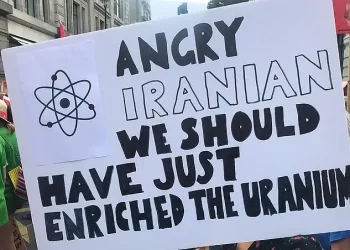A sweeping move by the U.S. Treasury has blocked 22 global entities accused of helping Iran funnel oil revenue to its elite paramilitary unit, the IRGC-Qods Force.
The latest sanctions disrupt a sprawling shadow banking network stretching across Hong Kong, the UAE, and Türkiye.
Sanctions Target Iran’s Secret Financial Lifeline
On July 9, 2025, the U.S. Department of the Treasury’s Office of Foreign Assets Control (OFAC) sanctioned 22 foreign-based companies tied to illicit oil sales and financial transactions that benefit Iran’s Islamic Revolutionary Guard Corps-Qods Force (IRGC-QF).
The coordinated action spans three countries—Hong Kong, Türkiye, and the United Arab Emirates—where front companies have operated in support of Iranian oil trades.
This marks the second major crackdown in 2025 on what OFAC calls Iran’s “shadow banking network,” a system of offshore accounts and brokers designed to bypass sanctions and secretly transfer hundreds of millions of dollars.
The IRGC-QF uses this income to support missile development and fund regional militant groups.
The Financial Trail Behind Iran’s Oil
Iran’s government continues to rely on international trade networks to covertly sell oil and other commodities despite heavy U.S. sanctions.
Companies under IRGC-QF control often disguise transactions using shell entities, cutouts, and coordinated logistics.
Among the most active players in this network:
-
Pulcular Enerji (Türkiye): Purchased Iranian oil worth hundreds of millions and routed payments through Hong Kong.
-
Amito Trading Ltd. and Cetto International Ltd. (Hong Kong): Acted as financial intermediaries, helping move funds through various offshore accounts.
-
Bright Spot Goods Wholesalers L.L.C. (UAE): A front company handling tens of millions in money transfers on behalf of IRGC-QF.
-
Golden Globe Demir Celik Petrol (Türkiye): Directly linked to the IRGC’s oil operations, managing annual oil sales via flagged tankers.
How the Network Operated
The structure of this covert operation involved layered payments and diversified channels to disguise end beneficiaries.
For example, refineries paid legitimate-seeming trading firms, which then passed the funds through exchange houses and shell companies before reaching Iran.
Entities Involved in Financial Transfers
| Company Name | Location | Industry | Activity |
|---|---|---|---|
| ENKA Trading Limited | Hong Kong | Trading | Facilitated tech-linked payments and oil transactions |
| Pulcular Enerji | Türkiye | Petrochemical | Direct oil buyer from IRGC allocations |
| Bright Spot Goods Wholesalers | UAE | Trading | Routed tens of millions for IRGC-QF |
| Cetto International Limited | Hong Kong | Financial Services | Transferred large sums through offshore accounts |
| Golden Globe Demir Celik Petrol | Türkiye | Oil Trade | Managed sanctioned tanker shipments |
These companies often collaborated with others to disguise transaction origins. In several cases, physical cash was couriered alongside digital transfers, further complicating enforcement.
Impact of OFAC Sanctions
According to OFAC, all U.S.-linked assets held by these entities are now blocked. American individuals and businesses are prohibited from engaging with any of the listed organizations. Non-U.S. institutions face secondary sanctions if they support the sanctioned parties.
Notable outcomes:
-
Foreign banks are now at risk of losing U.S. market access.
-
The targeted entities can no longer use U.S.-controlled financial channels.
-
Companies globally must reassess exposure to Iranian-linked oil and trade sectors.
A Broader Strategy Against Iranian Influence
This action builds on a wider U.S. campaign of “maximum pressure” initiated under National Security Presidential Memorandum-2. It aims to limit Iran’s ability to finance its missile programs and proxies like Hizballah.
“The Iranian regime relies heavily on its shadow banking system to fund its destabilizing programs,” said Treasury Secretary Scott Bessent. “We’re committed to dismantling this infrastructure to protect regional and global security.”
While this is the second major designation of 2025, it likely won’t be the last. The U.S. has made clear that any financial system facilitating Iranian oil trade will face consequences.
What This Means Moving Forward
The evolving sanctions landscape reflects a broader strategic effort to cut off Iran’s funding channels at their source. As enforcement tightens, businesses worldwide must remain vigilant about compliance and transparency in trade practices.
Sources: US Department of the Treasury and US Department of State.
Prepared by Ivan Alexander Golden, Founder of THX News™, an independent news organization delivering timely insights from global official sources. Combines AI-analyzed research with human-edited accuracy and context.









